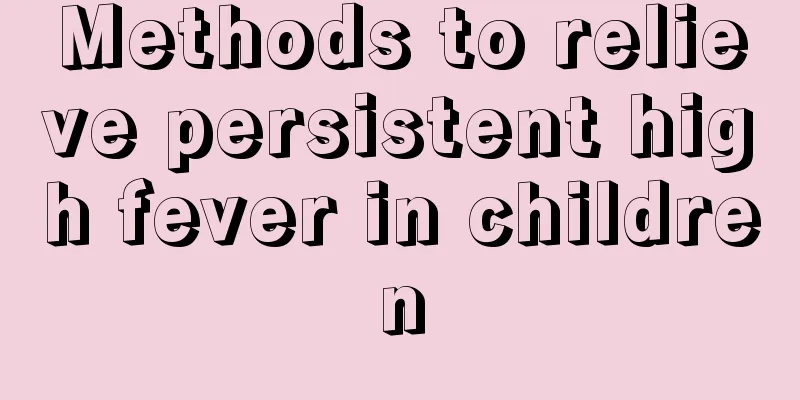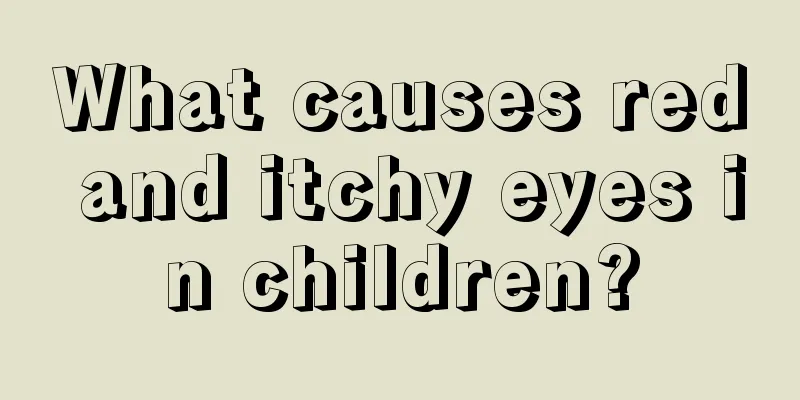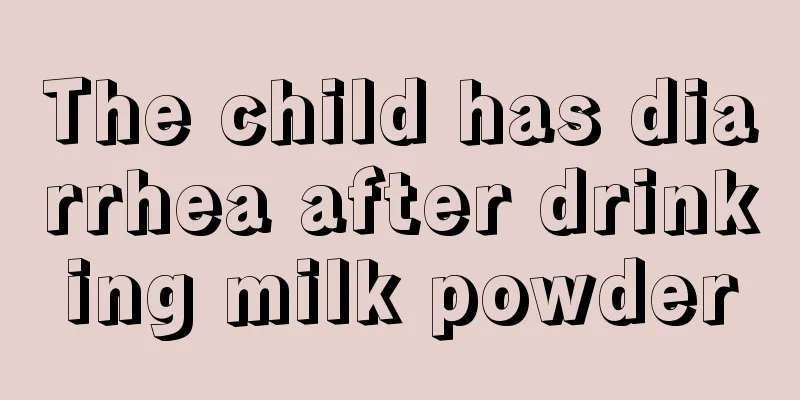Symptoms and care of eczema peeling on baby's face

|
Eczema and peeling on babies' faces is a very common phenomenon. However, when this happens, many parents become very anxious, worrying that this situation will cause damage to their children's facial image. Therefore, many parents want to fully understand the symptoms and care of eczema and peeling on their baby's face. The following is a detailed introduction so that you can learn about it as soon as possible. Baby eczema, also known as "fetal toxins" and "milk rash", is a common skin disease in infancy. It is an allergic disease, also called an allergic disease. It is most common in infants aged 1 to 3 months. The causes of infant eczema are quite complicated: external stimulation to the infant's skin, infant indigestion and congenital allergic constitution may all induce this disease. symptom Baby eczema usually occurs on the baby's face, neck, forehead, or even on the scalp, especially behind the ears, and sometimes on the buttocks. They are usually small red bumps, some with a little white on them, which look a bit like acne and are very itchy. Sometimes they are scattered on the baby's skin, and sometimes they appear in patches. Some newborns may also have fever symptoms, but generally rare. Generally, the symptoms of baby eczema do not appear all at once. One or two symptoms may appear at first, and then subside and appear again. There may be a few spots at first and then gradually more. Some newborns may even have eczema so severe that pus will be oozing out. Nursing 1. Keep the skin clean and dry. When bathing your baby, use warm water and non-alkaline bath agent to clean the baby's body. For babies with intertrigo, special attention should be paid to cleaning the folds of the skin. When taking a bath, the shower gel must be rinsed off. After washing, wipe the moisture off the baby's body and apply a non-oily moisturizer to avoid hindering the normal breathing of the skin. The baby's hair should also be washed every day. If the baby has seborrheic dermatitis, washing the head carefully can remove the scabs. If the scab has hardened and stuck to the head, apply olive oil on the affected area and then wash it after a while. After washing, you can apply some pediatric dehumidifying ointment. 2. Avoid external stimulation. Parents should always pay attention to changes in temperature and humidity around the baby. Babies with contact dermatitis should especially avoid exposing their skin to cold wind or strong sunlight. In summer, after your baby sweats during exercise, you should wipe off his sweat carefully; when the weather is cold and dry, you should apply anti-allergic non-oily moisturizer to your baby. In addition to paying attention to weather changes, parents should not let their babies wear clothes that are easy to irritate the skin, such as wool, silk, nylon, etc. 3. Trim the nails short. If your baby suffers from severely itchy atopic dermatitis or contact dermatitis, parents should trim their baby's nails regularly to reduce the chance of scratching. Symptoms and care of eczema and peeling on baby's face. If your baby has eczema and peeling on his face, you need to fully understand the symptoms and care of the above disease. Because only by understanding its symptoms and care can you use effective treatment and better care to make your baby's eczema on his face recover as soon as possible and let your baby grow up normally and healthily. |
<<: Misunderstandings in the treatment of neonatal cerebral palsy
>>: What is the cause of bleeding after the baby's umbilical cord falls off?
Recommend
What are the treatments for baby's oral ulcers?
When children are very young, their immune functi...
What are the effects of hemolysis on children?
Because the blood types of the mother and fetus a...
What are the misunderstandings about caring for children’s fallen teeth?
Children's teeth are a very important tissue....
Symptoms of swollen lymph nodes in the baby's abdomen
Many of us are first-time parents. There are many...
The child keeps coughing
A child's body is in the golden stage of grow...
What should I do if my baby has a fever, runny nose and diarrhea?
Babies often get sick due to poor resistance and ...
Does a child's fever and convulsions affect his intelligence?
If we have some bad conditions in our body, we mu...
What should I do if my child wets the bed?
Basically all children will have the problem of b...
Why do the skin on the hands peel? What is the reason for the skin on children's hands to peel
The symptom of peeling on the hands is mainly cau...
5 and a half months old with bloody stool
After a child is born, his body is very weak and ...
What to do if the newborn has yellow eye discharge
It is a common phenomenon that newborns have a lo...
Is cerebral hemorrhage common in premature infants?
According to some pediatricians, cerebral hemorrh...
What if the baby doesn't have teeth at eleven months old?
Teething is a stage that babies must go through i...
How many degrees of fever should a child have before taking medicine?
Children have weaker resistance than us adults, s...
How to detect autism in young children?
Parents of children with autism should pay attent...









